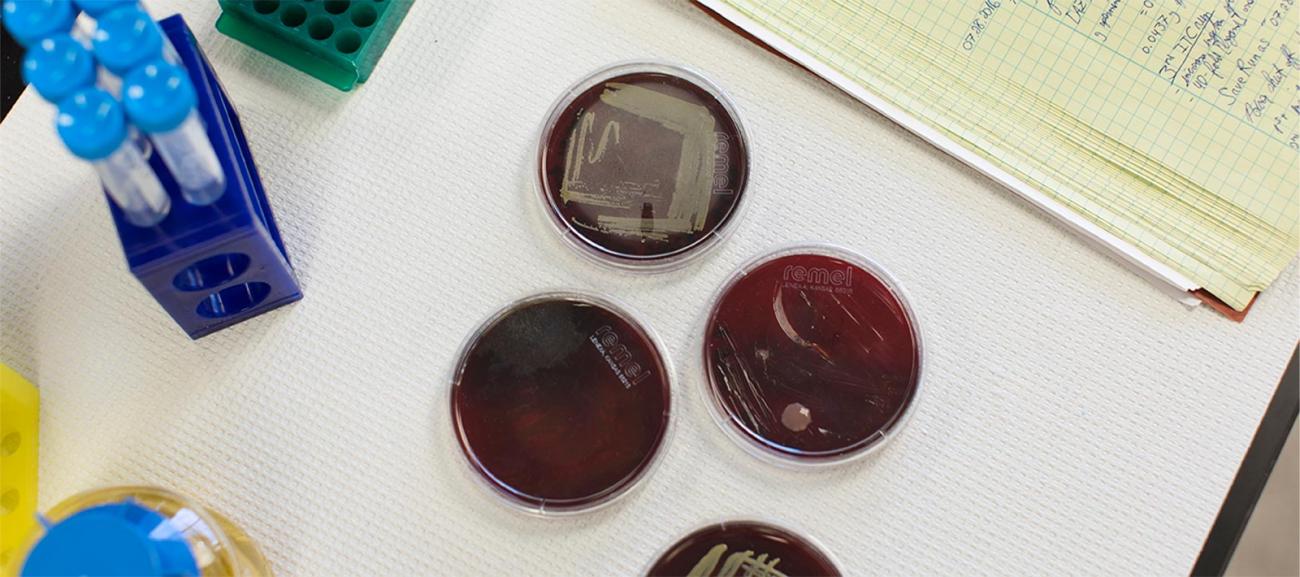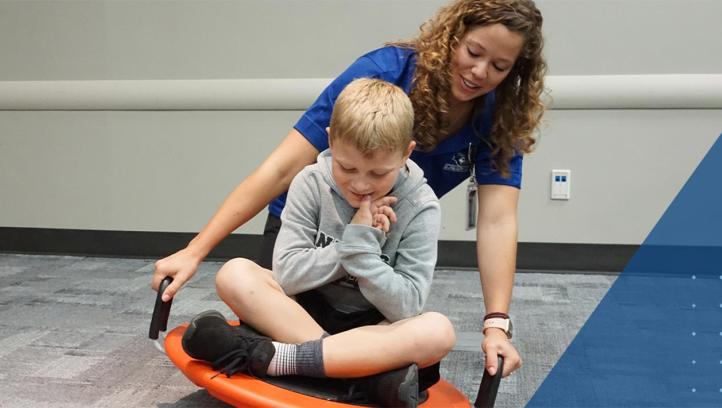
Ways to make a difference with an MPH degree

If you’re considering a Master of Public Health degree, you’re likely motivated by a desire to help others. Maybe you want to be on the front lines of patient care as a healthcare provider. Or perhaps you’d rather work at the institutional level as a policy maker or contribute to science as a researcher. Fortunately, there are many ways to make a difference with an MPH degree, depending on your specific skills and interests.
We consulted Maureen Tierney, MD, MS, associate dean and chair of Clinical Research and Public Health and professor at Creighton University, to get her expert insight on the topic. Keep reading to learn more about what an MPH degree entails and to explore a handful of rewarding public health careers to consider.
What do you learn in a Master of Public Health degree program?
A high-quality MPH program prepares you to raise awareness and promote best practices for public health in a variety of settings. In Creighton’s online MPH program, students build a strong foundation in public health principles and learn strategies for serving others in a variety of ways. Our students also gain a wealth of hands-on practical experience and apply their skills to real-life problems.
Beyond the core public health curriculum, Creighton MPH students have the opportunity to specialize in one of three areas:
- Health Care Ethics (HCE): Examine public health at a legislative, institutional and ethical level with curriculum covering access to health care, bioethics and healthcare reform.
- Healthcare Management (HCM): Gain leadership knowledge in strategic and program planning, resource management, and organizational leadership skills for a variety of healthcare settings.
- Global Health Promotion (GHP): Tailor health education and interventions to meet the diverse needs of a global community (from local to international).
Public health professionals of all kinds are needed now more than ever. “Having a wide field of individuals who measure and track factors that impact health is absolutely crucial to the wellbeing of our population,” Tierney shares. “Without them, we can’t begin to figure out how to prevent risks equitably and fairly across the globe.”
4 Public health careers for MPH degree holders
There are many rewarding public health jobs in the United States (and beyond) and it’s very likely you haven’t heard of all of them. One reason for this is the nature of the profession itself.
“When we as public health professionals are doing our jobs well, you don’t hear about it,” Tierney points out. “You only hear about it when it doesn’t.”
Below are just four examples of public health careers you could pursue after obtaining your degree.
1. Epidemiologist
Epidemiologists are responsible for investigating public health issues like disease, illness and injury. They strive to understand causal factors, identify relevant patterns or trends, and propose solutions to mitigate or eliminate public health risks and increase positive health outcomes.
Epidemiologists tend to specialize in one or more public health topics, such as:
- Chronic diseases
- Infectious diseases
- Maternal and child health
- Mental health
- Public health preparedness and emergency response
According to the U.S. Bureau of Labor Statistics (BLS), typical responsibilities for epidemiologists include:
- Studying public health problems to find ways to prevent them and treat them
- Collecting and analyzing information from diverse sources (observations, interviews, surveys, samples of blood or other bodily fluids) to find the causes of diseases or health problems such as lead poisoning or asthma worsened by air pollution
- Communicating findings to health practitioners, policymakers and the public
- Creating health promotion and health education programs
- Advising government sectors, including public school systems
- Participate in emergency preparedness and response activities
- Writing grant proposals to fund research
Most epidemiologists work in either applied public health or in research. “Applied” epidemiologists work for state and local governments. Research epidemiologists are typically employed by universities or government entities like the Centers for Disease Control and Prevention (CDC) or the National Institutes of Health (NIH).
2. Environmental health scientist
Environmental health scientists are dedicated to understanding and protecting the environment and human health. They study natural and manmade resources to determine their effects on the planet and the public’s overall quality of life. This discipline offers an almost endless set of topics to work on, including:
- Natural resources (air, soil, water, trees, crops, agriculture)
- Public health infrastructure (sanitation, food systems, transportation)
- Specific ecosystems
- Chemicals and chemical manufacturing
- Nuclear energy and weapons
The day-to-day duties of an environmental health specialist vary widely according to their expertise. The BLS states that environmental scientists and specialists typically do the following:
- Collect and analyze data from samples of air, soil, water, food and other materials to identify threats to the environment
- Develop plans to promote responsible use of natural resources and prevent, control or fix contamination, pollution and other environmental hazards
- Provide public health information, best practices and guidance to government officials, businesses and the general public
These scientists work in a variety of environments, including local, state and federal governments, scientific, engineering and technical consulting services, and private research companies.
3. Public policy director
A director of public policy (sometimes called a public affairs director) works at the local, state or federal level of government or non-profit organizations. This job is perfect for those who thrive on building and maintaining relationships and connecting the dots between people and opportunities. Public policy directors work with stakeholders of all kinds, including shareholders, community members, public employees, think tanks, non-profits, unions, and the press and media.
Public policy directors play a big role in shaping legislative decisions that affect the health and wellbeing of all citizens. Some typical duties include:
- Managing public relations and outreach with local communities
- Developing policies and programs that contribute to the overall health, safety and security of the community
- Assist in applying for grants and funding opportunities by showing the value of the work done by an organization or agency
- Lobbying for policy changes through appropriate channels
- Monitoring and analyzing upcoming legislative proposals, government changes and regulatory actions
For leadership roles like this one, many employers will require both a bachelor’s and master’s degree in a relevant field (e.g., public administration, political science, communications or public health). You’ll also need work experience in things like public speaking, oral and written communications, community organizing, lobbying, research and analysis.
4. Biostatistician
If you are great at math, biology and statistics – and want to use your skills to study and solve important public health problems – a career in biostatistics could be a great fit. Biostatisticians, sometimes called “biometricians,” work at the intersection of healthcare, computer technology and data analytics. They could work on any number of topics, including energy consumption, employment trends, infectious disease outbreaks, pharmaceutical research and development, crop production, and education.
Common duties of a biostatistician include:
- Designing surveys, studies, questionnaires, experiments and opinion polls to collect relevant data
- Using software to collate and analyze data, writing specialized code when necessary
- Interpreting data and creating visualizations (charts, graphs, reports, tables, etc.) and presenting findings to expert and non-expert audiences
Tierney shares that while it may not be a well-known career path, biostatisticians are critical to the field of public health. “If you don’t count or keep track of things accurately, you will not have a clear understanding of what’s happening in your community,” she explains.
Unlike many public health professionals, biostatisticians do not tend to work in a patient-facing capacity. It’s more likely to find them working in research and office environments at state or federal government agencies, non-profits, public health organizations, hospitals, agricultural companies, pharmaceutical manufacturers and more.
Make an impact with an MPH degree
As you can see, there are a variety of public health careers that help contribute to the greater good of society. An MPH can also be pursued in addition to other degrees in fields like medicine, nursing, law, or physical therapy, to enhance one’s ability to impact public health. If you’re inspired to pursue a position in this rewarding field, it’s time to start planning your next steps.
To get the academic training, expert guidance and experiential learning you need be effective in the field of public health, look no further than Creighton University’s Master of Public Health program.
Want a more in-depth explanation about this higher education option? Check out our article “What to Expect from a Public Health Degree”.
















